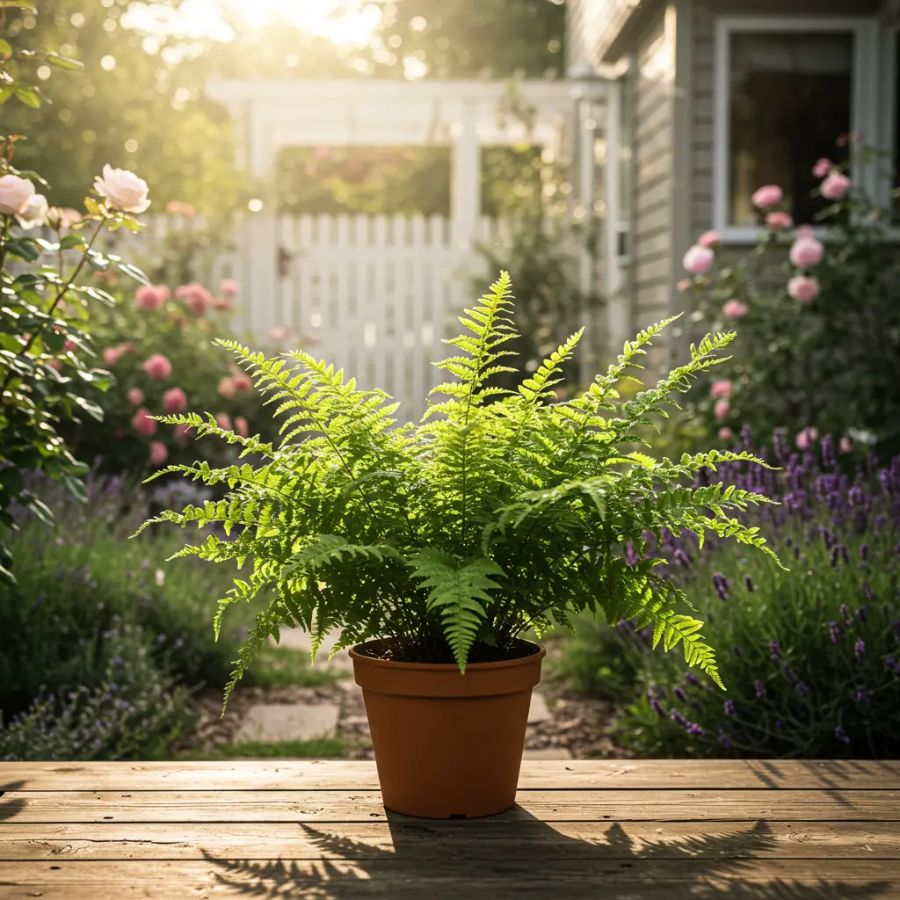Gardening is a skill. You learn by doing. And you will make mistakes.
Many new gardeners start each year. The home gardening market saw continued growth in 2024 as more people want to grow their own food. But new gardeners often make the same few mistakes. Knowing them ahead of time helps you get a better harvest.
This guide covers the most common problems.
1. Choosing the Wrong Location
Where you put your garden is the most important choice you make. A bad spot means your plants will struggle.
Not Enough Sun
Most vegetables and fruits need at least 6 to 8 hours of direct sunlight each day. This is called "full sun." Before you dig, watch the spot you picked for a whole day. See how much direct sun it gets. A shady yard is not good for growing tomatoes. But it works for plants like lettuce or kale. Choose plants that fit the light you have.
Ignoring Your Water Source
You will need to water your garden. Placing it too far from a hose or spigot makes watering a difficult chore. You are less likely to do it if it's hard. Make sure your garden is in a place you can easily reach with a hose.
2. Overwatering Your Plants
New gardeners often give their plants too much water. They think more water is better. It is not.
Too much water drowns the plant's roots. Roots need air to live, and waterlogged soil has no air pockets. This leads to root rot, a disease that kills plants.
As one expert from the University of New Hampshire Extension puts it, "More plants are killed by loving gardeners with watering cans than by neglect."
How to Water Correctly
Don't water on a schedule. Water when the plants need it. Check the soil first. Stick your finger about two inches into the dirt next to the plant. If the soil is dry at that depth, it is time to water. If it feels moist, wait another day and check again.
3. Ignoring Your Soil
Good soil is the foundation of a good garden. Just digging a hole in your yard and putting a plant in it rarely works well.
Not Improving the Soil
Most yard soil is not perfect for vegetables. It is often compacted, lacks nutrients, or is mostly clay or sand. You must improve it. The easiest way is to add a few inches of compost to your garden bed each year. Compost adds nutrients, improves drainage in clay soil, and helps sandy soil hold water.
Guessing About Nutrients
You cannot see what nutrients are in your soil. A soil test tells you. You can get a simple test kit online or from a garden center. The test shows you your soil's pH and if it is missing any key nutrients. This information helps you add the right things to fix it.
4. Planting Too Close Together
It is tempting to fit as many plants as possible into a small space. This is a mistake.
Plants need room to grow, both above and below the ground. When they are too close, they compete for sunlight, water, and nutrients. This results in smaller plants and a smaller harvest.
Crowded plants also have poor air circulation. This creates a damp environment where fungal diseases like powdery mildew spread easily. Read the back of your seed packet or plant tag. It tells you the correct spacing for that plant. Follow it.
5. Starting Too Big
Gardening is exciting. Many beginners get ambitious and plan a huge garden. This often leads to burnout.
A large garden is a lot of work. Weeding, watering, and pest control can become overwhelming very quickly. Then the garden gets neglected, and the experience is frustrating.
Start small. A 4x4 foot raised bed or a few large containers is a great way to begin. You can learn the basics on a small scale. You can always make your garden bigger next year.
Frequently Asked Questions
What is the most common mistake in gardening?
Overwatering is the most common mistake made by new gardeners. People mean well, but giving plants too much water is more harmful than giving them too little.
How do you know if you are overwatering a plant?
Signs of overwatering include yellowing leaves that fall off, wilting even when the soil is wet, and soft, mushy stems at the base. The soil will also feel soggy or waterlogged instead of just moist.
Why do my plants keep dying?
Plants die for many reasons. The most common are incorrect watering (too much or too little), not enough sunlight, poor soil, or pest and disease problems. Check these common issues first.
Does a garden need full sun all day?
No. "Full sun" means at least 6 to 8 hours of direct, unfiltered sunlight per day. It does not need to be from sunup to sundown. Most vegetables and fruits require this amount of light to produce well.
Is it better to water plants in the morning or at night?
It is best to water plants in the morning. This gives the leaves time to dry out before the evening. Wet leaves at night can encourage the growth of fungal diseases. Watering in the heat of midday can cause water to evaporate too quickly.
Can I use soil from my yard for container gardening?
You should not use regular garden soil in pots or containers. It is too heavy and compacts easily, which restricts root growth and drainage. Use a quality potting mix designed for containers instead.
